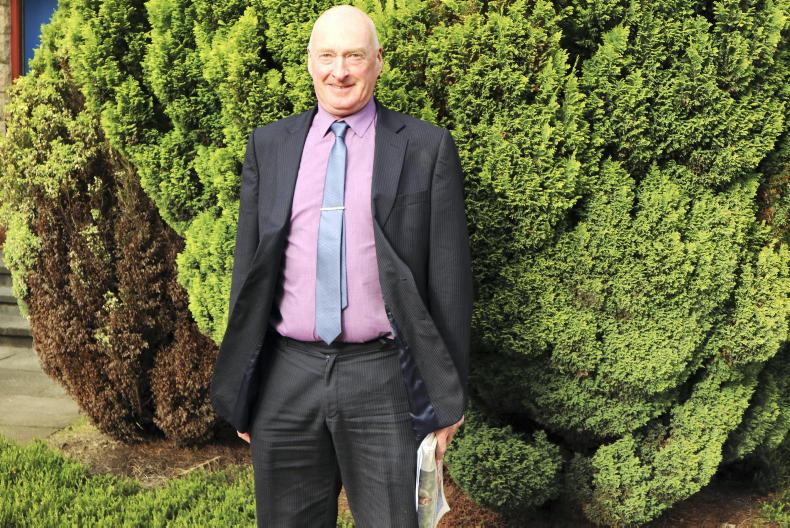Young farmers need to be made fully aware of what they are in for – right from the start, according to the chair of the Scottish Beef Association Neil McCorkindale.
“What’s the point in feather-bedding them for a couple of years, then pulling the plug on them and leaving them high and dry?” he asks. “There’s funding going to young farmers, but you’ve got to take a look at the bigger picture. There’s no point giving money to the young farmers for a year or two; you need to have a policy that allows them to continue through.”
He sees plenty of opportunity in farming for young people, such as share farming, contract farming and partnerships.
“You’ve a young person that’s got energy and, if they’re trained properly with the knowledge, there’s no reason at all why there shouldn’t be partnerships. The ground is there, the fields are there, the hills are there. The opportunities are there if you can find the right person.”
Born and bred at Scammadale farm, just outside Oban, McCorkindale worked hard at expanding the farm after he left school in 1965. He was involved in the National Beef Association before the formation of the Scottish Beef Association, which he has chaired for the last two years.
“I don’t think it matters which part of the country you produce beef in; you’ve mainly got the same interests and the same concerns at heart,” he told Farmers Journal Scotland. “I find it very rewarding, particularly when you go to along of the meetings with the food and drink industry, the Scottish government and the cabinet secretary. Fergus Ewing is adamant that he’d much rather see beef cattle grazing the hills than butterflies, so that’s rewarding to hear.”
In fact, he believes the SBA has a very good working relationship with the cabinet secretary Fergus Ewing. However, he took umbrage to Michael Gove saying that farmers have now got to earn support payments.
“As far as I’m concerned I’ve been earning them for the last 50 years. But I think I can understand what he is trying to say; there’s money available but you have to do these specific things to get it.”
The future of farm support
That is how he believes farm support payments will work in the future: you will receive money for carrying out specific tasks. In that context, he vowed to do everything he can to ensure the future of the coupled support scheme for the beef calves.
“The Scottish beef industry must have a future; I don’t care what anybody says on that. If the numbers fall any more we’re just leaving a bigger and bigger vacuum for imports.”
Moving forward efficiency will be very important for farms, he says.
“I know myself there’s things that I can be more efficient on, now is the time to do them,” before the UK leaves the EU. “One of my biggest concerns is that there is a difference between making a living and having money to invest. Farmers spend money, you could go out into your yard every morning and see a dozen things that you could spend £10,000 on to make it more efficient. If there’s not money there to invest then the countryside is going to suffer, no question about it. I think the Scottish government understands that, and the biggest job they have now is to convince Westminster.”
Farm profile
Farm: Scammadale, Kilninver, Oban.
History: Purchased from the Duke of Argyll in 1958.
System: 100 cows and 600 sheep. The focus is on working the sheep around the cows’ grazing ground, which is top priority.
Breeding: Purebred Luing cows crossed with Simmental bulls. Pure Blackie sheep on the hills.
Staff: Two people involved full-time on the farm.
McCorkindale’s opinion on schemes
Farm assurance scheme
“The only thing that annoys me with it is that you’ll have the farm assurance inspector there one day, the food safety agency guy the next day and then the government phones you up the next week. I think every farm should be happy to dedicate one or two days a year to be inspected, and not unannounced inspections.
“Whether there’s a premium on it or not, the answer is probably no. But I still think it’s important. At the end of the day, we have customers out there and you have to give the customers what they want.”
Beef Efficiency Scheme
“Unfortunately, the beef efficiency scheme didn’t capture farmers, it just didn’t hit the ground running. It was poorly presented at the start. The money is there – and Fergus Ewing is understandably very keen that we can use the money – but only about 1,400 to 1,500 of approximately 19,000 beef farmers have taken it up. There was a lot of negativity about it. I spent half a day online putting the data into Scot EID, and you’ve to weigh calves later on. But the bottom line is we’re not going to get money for doing nothing – simple as that.”






 This is a subscriber-only article
This is a subscriber-only article











SHARING OPTIONS: